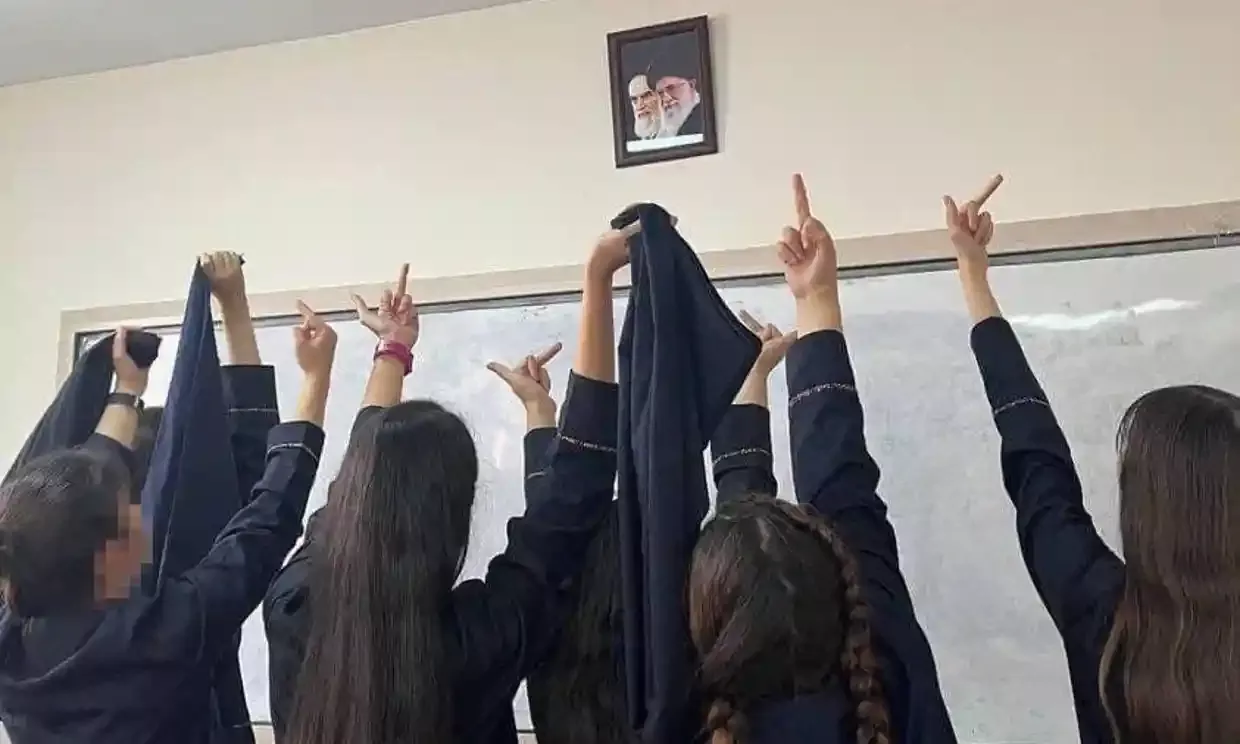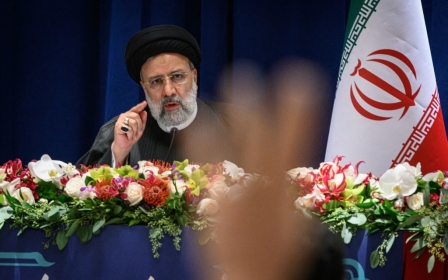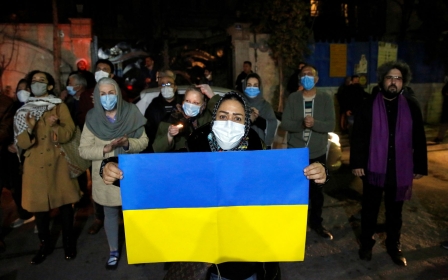Iran protests: Schools warn parents they won't help arrested children

School officials in Iran have warned parents not to let their children organise resistance inside schools or after hours as anti-government protests spread to high schools.
Concerned parents told Middle East Eye they had received messages from school directors warning of their children’s “potential arrest” if they participated in the uprising.
In the last few days, school students have joined the wave of protests sparked by the death in police custody of 22-year-old Kurdish woman Mahsa Amini, who was arrested by Iran’s “Islamic morality police” for not wearing her hijab in accordance with government standards.
'They very clearly told us they wouldn’t be able to help if our child was arrested'
- Parent in Tehran
The uprising is now in its fourth week and this is the first time since the 1979 revolution that school students have taken part in organised protests against the establishment.
One parent in Tehran told MEE that school directors at their child’s private high school had sent them a message and “very clearly told us they wouldn’t be able to help if our child was arrested for chanting anti-establishment slogans inside the school or marching on the street after school ended”.
On Sunday, school students in the capital were out on the streets chanting anti-government slogans. In videos that went viral on Persian social media, the teenagers are seen shouting “We don’t want the Islamic Republic” and “Down with the dictator”.
Reports also circulated that plainclothes officers entered Afarinesh art high school in Pardis, one of Tehran's satellite cities, to arrest the students protesting the government.
A student at a public school in Tehran said that school officials warned that “students participating in any political activity inside the school would be expelled”.
“Our principal went to all classrooms - one by one - and told the students that they are obliged to give the police any information they have about political activities by the students inside the schools,” the student told MEE.
'The mullahs should get lost'
Reports from Mashhad, the country's second-largest city, said that school students there had also participated in the latest wave of anti-establishment resistance.
A video from the holy city in Razavi Khorasan province showed girls in their school uniforms with headscarves slipped around their necks, chanting: “The mullahs should get lost.”
Mashhad is an important centre of power for conservative and hardline politicians. Before being elected president, Ebrahim Raisi was headquartered there as the custodian of the holy shrine of Imam Reza, the eighth Imam of the Shia Twelvers.
Hajar Chenarani, a hardline legislator from Khorasan Razavi, told local media that “the majority of protestors arrested in the province were aged between 14 and 18-years old".
Students in other cities tore up and burnt photos of Ruhollah Khomeini, founder of the Islamic Republic of Iran, and Ali Khamenei, the country's supreme leader.
To control the spread of protests to schools, the government temporarily shut down schools in the southeastern city of Zahedan, capital of Sistan and Baluchistan province, and in the Kurdistan province.
Since mid-September, some of the deadliest confrontations between police and protesters have taken place in Kurdish towns and Zahedan.
Amini's death was announced officially on 16 September. By 8 October, 185 people had been killed during the protests that have followed, according to the Norway-based Iran Human Rights group.
Middle East Eye propose une couverture et une analyse indépendantes et incomparables du Moyen-Orient, de l’Afrique du Nord et d’autres régions du monde. Pour en savoir plus sur la reprise de ce contenu et les frais qui s’appliquent, veuillez remplir ce formulaire [en anglais]. Pour en savoir plus sur MEE, cliquez ici [en anglais].




